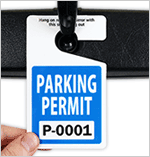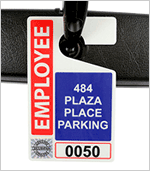Portland city council votes to end free disabled parking downtown
The city coffers of Portland, OR, may soon welcome more than $1 million annually when disabled parking permit holders begin paying for parking in its downtown. The city has offered free parking to disabled motorists for decades, but a 2008 change to state law gave local governments the option to suspend free parking to disabled drivers who don’t require wheelchairs.

Portland motorists with disabilities are going to be paying fees just like everyone else. From Simon Law.
The green light from the state prompted city commissioner Steve Novick (who oversees Portland’s Bureau of Transportation) to propose regulations that distinguish between disability parking-permit holders with wheelchairs and those with other forms of disability: the former can still park for free in the city’s downtown, while the latter must pay starting July 1.
According to city figures, since conducting a street count in 2007, the number of parked cars with disability placards has almost doubled. In September, another tally by the city studied use downtown and near the Rose Quarter area and found that vehicles with placards occupied 1,033 of 8,7533 spaces or almost 12 percent. Of that number, permit holders with wheelchairs occupied just 21 spots.
And in the three counties—Multnomah, Washington, and Clackamas—that make up greater Portland, the state has issued approximately 2,400 placards for those with wheelchairs but almost 90,000 placards for those with other disabilities.
With parking at downtown meters costing $1.60 hourly, allowing drivers with disability placards to park for free means Portland forfeited an estimated $2.4 million in revenue in 2012. Revising regulations doesn’t guarantee that the city will recoup that precise amount, officials say, because placard holders may instead begin using public transit or parking in private lots.
But Novick is hopeful that the change will bring in added revenue. “We felt we couldn’t continue a somewhat irrational subsidy,” he said to the press last month. “We’ve come up with a solution that addresses the real concerns of the community and avoids the unfairness of the current system.”
The 4-foot-9 commissioner, who was born without a left hand and is missing fibula bones in both legs, doesn’t have a disability that restricts his mobility, but his proposal does have the support of the city’s Disabled Parking Task Force and the Portland Commission on Disability.
While praising Novick’s leadership, Joe VanderVeer, who chairs the commission and who has a wheelchair placard, said that the regulatory change addresses “a very difficult issue” and that there was no consensus among the commission.
The Portland city council voted in support of Novick’s proposal last month but must vote in the spring to implement it.
In the meantime, the city is hoping to improve disability access by adding up to 50 disabled parking spots in key locations. Residents who live subsidized housing and who have been issued disability placards will also be exempt from the regulatory change through June 2015.
Related Posts
Category: Enforcement, Handicapped parking, Parking management





















